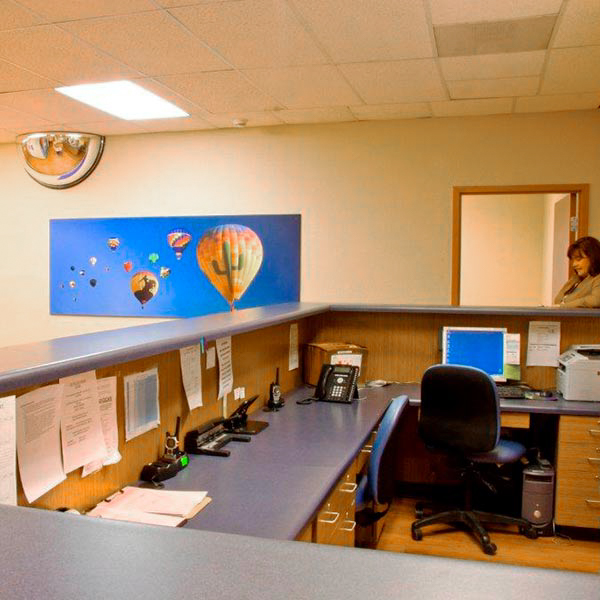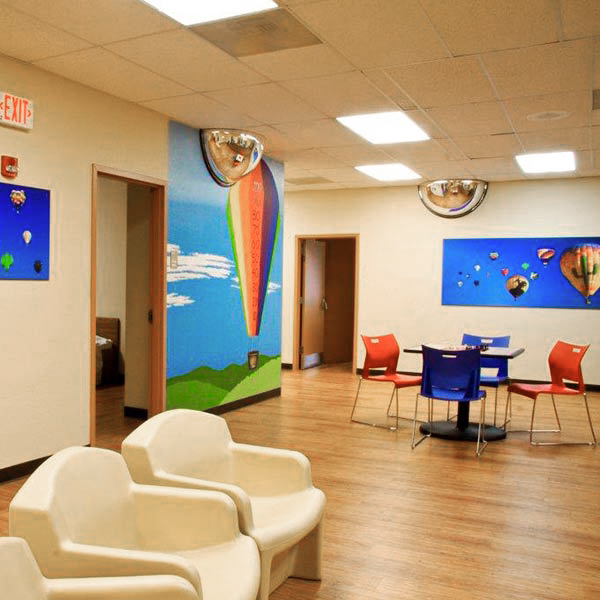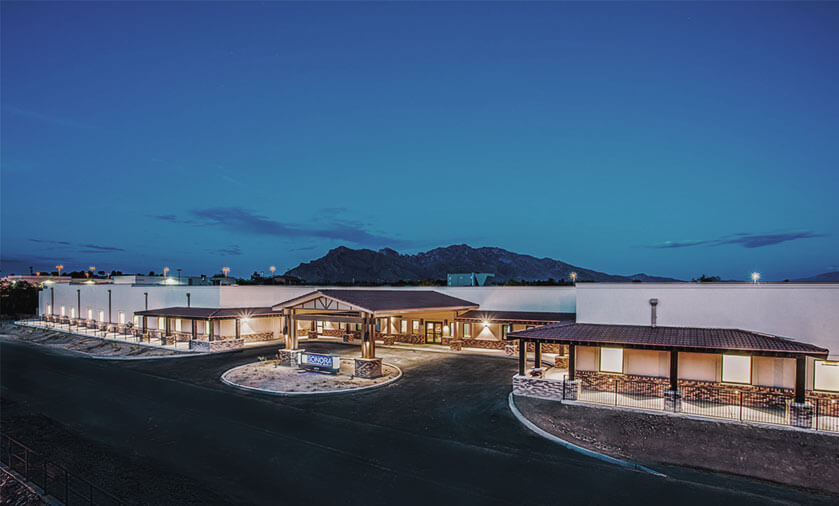Sonora Behavioral Health Hospital is dedicated to providing superior treatment to children, teens, and adults suffering from aggression. Located in Tucson, Sonora provides the comprehensive care needed to successfully manage mental health disorders and lead a life of recovery.
About Aggression
Learn More About Treatment for Aggression
Aggression is defined as behavior that causes or threatens physical or emotional harm. This behavior can range from verbal abuse to the destruction of a victim’s personal property. While everyone has some aggressive tendencies due to our inherent need to protect ourselves, some individuals have such dominant feelings of aggression that it can cause extreme disruption in their lives. Aggressive behavior is done on purpose, violates social norms, and can cause a breakdown in relationships. Additionally, this type of behavior can vary in severity, ranging from emotional dysregulation to severe, manipulative behaviors. When many people think of aggression, they tend to think of physical attacks like hitting, punching, and kicking. However, behaviors such as blatantly excluding others, starting rumors, bullying, and spitefully arguing with others can be just as devastating and damaging.
Generally, aggressive behavior is the result of an individual’s inability to control behavior or a misunderstanding of what behaviors are appropriate. Aggressive behavior can be reactive, occurring as a form of retaliation. Additionally, it can be proactive as a means to provoke a victim and can be either overt or secretive. When a child, adolescent, or adult loses their ability to control their behavior and acts out in an aggressive manner, it can have a negative impact on their life. When a person loses control of his or her ability to refrain from acting out in an aggressive way, it can have a detrimental impact on his or her life. Uncontrolled aggression can destroy personal relationships, cause problems at work or school, and cause an individual to participate in risky behaviors. The effects of excessive aggression will not only have a negative impact on the person who struggles with this lack of control, but on the lives of those in that individual’s life as well.
While aggression can result in a large number of adverse consequences, it can be treated at an aggression treatment center. Through the use of various therapeutic interventions and behavior modifications, people can acquire the tools they need to gain control of their behavior and refrain from acting out on their aggressive tendencies.
Causes
Causes and Risk factors for Aggressive Behavior
There are a number of factors that can influence the development of aggressive behaviors. Factors can include genetic traits, experiencing various environmental factors, being prescribed certain medications, or suffering from a mental illness. Some of the most commonly cited causes of aggressive behaviors include:
Genetic: Many researchers believe that genetics can play a role in whether or not a person will be susceptible to aggressive behavior. Studies conducted on mice have shown that mice that lacked a certain gene acted in a much less aggressive manner than mice that had this particular gene. The gene is also present in human beings, and therefore researchers hypothesize that similar, if not identical, results would be demonstrated in humans.
Environmental: In many instances aggression can be the result of poor parenting or exposure to aggression or violence as a child. When that child grows up they will mimic that aggressive behavior because they will have learned that aggression is how to deal with certain life circumstances.
Medications: There are a number of prescription medications that have been known to produce side effects consisting of increased irritability, agitation, nervousness, and anxiety, all of which can potentially lead to feelings of aggression.
Mental illnesses: Psychological disturbances are believed to be the most common cause of aggressive behaviors. While the symptoms of almost any mental health disorder can lead to the development of aggression, the most predominantly noted disorders believed to produce extreme and unwarranted episodes of aggression include:
- Substance abuse disorders
- Post-traumatic stress disorder
- Schizophrenia
- Bipolar disorder
- Psychosis
- Dementia
- Alzheimer’s disease
Effects
Effects of Aggressive Behavior
When aggressive behaviors are not properly addressed and treated, it can lead to even more aggression and violent behavior. An increase in aggressive behavior can cause a wide range of destructive consequences in a person’s life. These consequences can include psychological, social, physical, and legal ramifications, to name a few. Examples of these effects may include:
- Job loss and periods of unemployment
- Academic failure
- Dropping out or being expelled from school
- Relationship strain, including the loss of significant others, friends, and other people who were once very important in the individual’s life
- Poor adjustment capabilities
- Decline in one’s physical health
- Financial problems
- Development of substance abuse and addiction
- Hospitalization
- Incarceration
Treatment
Aggression Treatment Offered at Sonora Behavioral Health Hospital
If you or a loved one is engaging in excessive acts of aggression, it is crucial that a mental health professional at a psychiatric treatment center is consulted. In order to be able to work through the aggressive behavior, the primary cause and underlying factors must first be identified. A mental health professional will be able to conduct a thorough assessment that will be able to more accurately pinpoint what is causing this inappropriate behavior and set up a treatment plan based upon individual needs.
While there are a number of different treatment options that can be beneficial in treating aggression, it is often that case that the intense therapy offered in inpatient programs can be the most effective. In addition to getting the treatment process started, an inpatient program provides individuals with a safe place and 24-hour support from mental health professionals that are trained to immediately diffuse the development of aggressive behavior. The therapeutic interventions provided in an inpatient treatment such as the one at Sonora Behavioral Health Hospital in Tucson are designed to help individuals learn how to regulate their emotions, identify triggers for their aggression, and develop coping skills to deal with stressful life situations. Through methods such as group therapy, individual therapy, family therapy, and experiential programming, people struggling with feelings of aggression can gain control of their behavior and take back their life.














